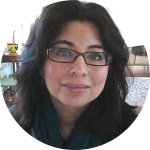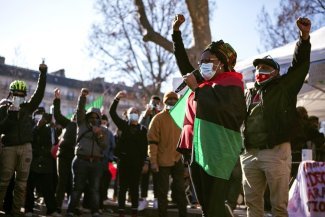European Union (EU) member states may score highly in press freedom rankings, but disunity among the 28 countries threatens to undermine EU values and authority, according to a new report published by the Committee to Protect Journalists (CPJ).
Balancing Act makes several recommendations for a stronger free press. Namely, the EU should hold each member state responsible for and accountable to the Charter of Fundamental Rights of the European Union, to which they abide upon membership. The report also asks for the enforcement of Article 7 of the Charter, which advocates suspending the voting rights of member states that break press freedom commitments.
Jean-Paul Marthoz, CPJ EU Correspondent and author of the report, explained to Equal Times the consequence of breaking those commitments: “Press freedom groups try to enlist democratic governments in order to help defend journalists, get them out of jail, or support progressive resolutions at the UN, etc. But the capacity of these governments to help depends on their credibility.
“If they allow freedom of the press to erode inside their own borders or if, in the case of the EU, they do not call to order member states that veer off from fundamental principles, it is easy for authoritarian governments to call their bluff or to use the democratic countries’ own failings to justify a crackdown on their own media.”
One area of concern is the continued existence of criminal defamation laws in some member states. Despite the Council of Europe’s recommendation that blasphemy be decriminalised, the EU fails to enforce the Charter on those countries that retain it.
As a result, criminal defamation remains active in 23 of the 28 EU member states, and 20 countries retain imprisonment as a possible punishment.
In Italy, criminal defamation laws are open to abuse; for example, over one-third of cases against the Italian press came from false lawsuits between 2011 and 2013.
Blasphemy and insult laws exist in 19 member states, according to End Blasphemy Laws campaign.
“Blasphemy laws have a chilling effect on speech. They prevent the open and rational discussion of beliefs and they are often meant to protect one religion in particular, instituting a discrimination against other forms of belief or non-belief. In fact while they pretend to defend religion blasphemy laws [they] often undermine freedom of religion and of conscience,” Marthoz said.
Bulgaria, Germany, Italy, Portugal, Spain and the Netherlands administer harsh penalties for defamation against public officials, but insults against state symbols, state institutions, royal family members and religion are also considered a crime. Cyprus, Estonia, Ireland, Romania and the UK are the only countries that have eliminated criminal defamation.
The report cites “libel tourism,” in which a claimant shops from country to country in search of the most favourable verdict, as a consequence of inconsistent libel laws across the land.
For example, anti-austerity protests in Spain prompted the government to pass a law in April 2015 forbidding journalists from taking photographs of rallies outside government buildings or of the police. If infringed, journalists now face fines of up to €30,000.
“There is a serious concern that the threat of these fines will lead to self-censorship to the detriment of accountability for abusive behaviour such as excessive use of force by law enforcement officers,” Human Rights Watch said.
Rioters, police, criminal gangs and extremist groups increasingly pose great physical danger to journalists, according to the special report, forcing them to self-censor.
In Greece, members of the far-right group Golden Dawn attacked journalists, while National Front members heckled journalists in France and the Hungarian far-right Jobbik Party sued journalists – all in 2015. Journalists in Bulgaria, meanwhile, experience ongoing threats by criminal organisations, and have been the target of assassination attempts, assaults and bomb attacks.
The Charlie Hebdo killings, coupled with death threats ten years earlier against the Danish cartoonist from daily newspaper Jyllands-Posten, also brought self-censorship into sharp focus.
“We have lost a battle. The terrorists have won,” former Charlie Hebdo editor and director Philippe Val told Swiss TV station RTS.
Journalists under surveillance and “soft” control
“Make no mistake: journalists cannot protect their data from their national secret services,” warned a European intelligence expert who spoke to CPJ for the report on condition of anonymity. In addition, the report references documents revealed by whistle-blower Edward Snowden that describe journalists as a “security threat.”
The report’s author recognises the friction between terrorism and freedom of expression, but questions whether the counterterrorism measures member states adopt respect the Charter of Fundamental Rights of the European Union.
Some journalists also operate within a “soft censorship” environment, an indirect form of government censorship that uses cronyism, state advertising, government controlled allocation of subsidies and licenses, and where oligarchs and investment groups own media outlets as a form of editorial manipulation.
The report names France and countries within eastern Europe as the top operators of the soft censorship model that threatens independent media coverage.
European Journalism Centre director Wilfried Rutten said that Hungary first “exposed the failings of the EU” in 2010 when Hungarian president Viktor Orbán reformed Hungary’s Media Act and gave powers to a newly-created Media Council to fine Hungarian media outlets, free of EU consequence.
The report also found that trade and geopolitical interests bind Europe’s press by way of “technical directives” set out to protect corporate secrets, which member states in turn interpret on a national level.
The EU’s “tailored” approach to human rights enforcement on its 130 trading partners coupled with its lack of transparency further hinders journalistic scrutiny: “When you ask for information or documents which might contradict the official narrative, the gates fall and spokespersons do not really help you,” Le Monde correspondent Jean-Pierre Stroobants told CPJ.









